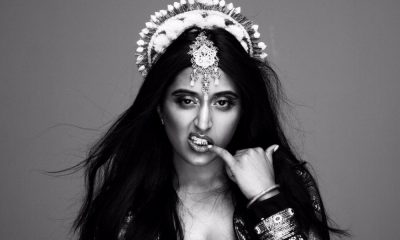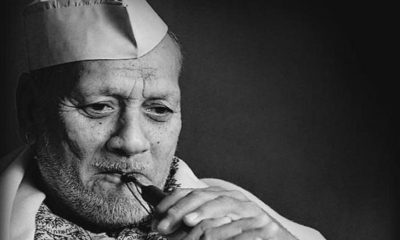Media
The Troubadour of Hope
He’s the Johnny Cash of Indian pop music, a thinking actor, a devout Muslim, a loving husband and a doting father. Let’s throw in carpet-seller, oil rigger, organic farmer and horse breeder – can a man play any more roles in one lifetime? These identities are just a fragment of the enigma that is Lucky Ali. FWD life meets him at Dream Hotel, Kochi during his All India tour.
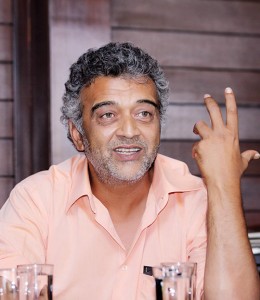 Behind his soulful music, dreamy hazel eyes and rugged good looks, lies a personality with a very philosophical view of life. The world can pass him by, but Lucky plays by his rules and works at his own pace.
Behind his soulful music, dreamy hazel eyes and rugged good looks, lies a personality with a very philosophical view of life. The world can pass him by, but Lucky plays by his rules and works at his own pace.
Lucky’s wanderlust has taken him places and made him dabble with professions you wouldn’t associate with passionate musicians. He embarked on a journey that was strikingly similar to western pop legend/actor Johnny Cash. If Johnny Cash showed the western world what happens when rural sensibilities and values mix musically with the urban environment, then Lucky Ali would be his Indian counterpart.
So, what makes Lucky Ali tick? Delve deeper and the mystery unravels…
He was born Maqsood Mehmood Ali to Bollywood comedian Mehmood Ali and Mahelaka. The name ‘Lucky’ was his father’s tribute to him, celebrating the first big break he got, the day his son was born. “But I was not lucky for myself. I think luck is just a misnomer, and success solely depends on hard work and how you present it in cinema,” says Lucky.
Lucky went to boarding school at a very tender age, and this resulted in a big disconnect with his family. During his childhood, the faces of his family members were all a blur, especially his father’s. On one occasion, he recognised the popular comedian Mehmood, before realising it was his own father! Definitely not a compliment to the role Mehmood played as a father, and the impact it had on his son.
But, despite Mehmood’s hectic work schedule and the time he spent away from his family, he managed to inculcate some lasting values that Lucky cherishes even today. “My dad was strict – just like the coconuts you have in Kerala, tender within, but hard on the outside. He taught me to keep things simple and express things genuinely, without beating around the bush,” says Lucky.
Lucky was fortunate enough to be born into a respectable family, but found it difficult to keep pace with expectations that were larger

than life. Being a free spirit, he was a little hazy about his goals, and ambiguity pervaded his mind when it came to making a distinctive career choice. “I had no idea whether I wanted to be an actor, a singer or a merchant naval officer. I had a tough time convincing my dad that I was not a looser and that I could put in the hard work necessary to achieve my goals.”
His strikingly simple, yet soulful ballads brought him immeasurable fame only because he played music that was true to his heart. “My success came as a big surprise to my dad, and that’s when I realised that I actually did it for him,” says Lucky, reflecting on what he achieved to please his father.
He chanced upon love early in life and wasted no time in tying the knot, knowing full well he was not a one-woman man. Today, he is a husband to three wives, a father to four children with the fifth on the way. This works for him because he treats all his wives and children equally, with the love and respect they deserve.
Always the non-conformist, Lucky did not want to be shackled by the music industry. The till of the land and breeding of horses held as much appeal to him as the performing arts. “I want to pick up things and do some work, not just go to an office and sit there,” says Lucky.
He has a new project in the offing in Bangalore, which is neither a song nor a movie – it’s a way of life. It is a holistic experience that promotes a symbiosis of organic agriculture, good health and good food, coupled with spa treatments. Lucky sees this as an opportunity to meet different people, connect with them and learn from them.
Lucky lives by the principle that ‘there’s so much to do in life, and so little time to do them’. He has greatly enjoyed the rollercoaster that has taken him places, given him new experiences and brought him home to a loving family. He has lived life to the fullest and stands by the intriguing life he has led. “I’m just passing by; you never know if there’ll be another tomorrow,” says the philosopher in Lucky.
Fashion
Unveiling the Mystery : The Rise of ‘Quiet Luxury’ – The Viral and Ultra-Expensive Fashion Trend Followed by Billionaires

In the world of fashion, where flamboyance and opulence often take center stage, a new trend has quietly emerged, captivating the attention of celebrities, billionaires, and fashion enthusiasts alike. Known as “Quiet Luxury,” this viral and ultra-expensive fashion trend is causing waves in the industry, challenging the conventional notions of wealth display and style.
While many high-end luxury brands are known for their ostentatious and eye-catching designs, ‘Quiet Luxury’ takes a different approach. It revolves around the concept of dressing in understated, label-less clothing that exudes an aura of sophistication and exclusivity, despite its seemingly ordinary appearance. This trend has gained significant traction over the past few months, with influential figures embracing its allure.
So, what exactly is ‘Quiet Luxury’? At its core, it is a form of subtle wealth display, where the wealthiest individuals meticulously curate their attire with understated tones, simple cuts, and an absence of prominent logos. These seemingly unassuming garments, however, come with exorbitant price tags, often costing a small fortune.

One notable incident that brought ‘Quiet Luxury’ into the spotlight was Gwyneth Paltrow’s appearance in court, clad in an impeccably tailored but discreet pantsuit. This choice perfectly exemplified the essence of ‘Quiet Luxury,’ showcasing the ability to convey elegance and affluence without resorting to overt displays of wealth.
The appeal of ‘Quiet Luxury’ lies in its ability to provide billionaires with a paradoxical blend of ordinariness and exclusivity. By adorning themselves in seemingly commonplace clothing, these individuals are able to blend in with the masses while exuding an air of refinement and extravagance. The garments they choose may appear unassuming to the untrained eye, but their true worth is hidden in the finest craftsmanship, luxurious materials, and meticulous attention to detail.
One prime example of this trend can be found in the wardrobe of Facebook founder Mark Zuckerberg, often seen sporting plain white or grey t-shirts that carry a hefty price tag. Such minimalistic pieces become the epitome of ‘Quiet Luxury,’ encapsulating the allure of hidden opulence within simplicity.
While ‘Quiet Luxury’ is not an entirely novel concept, its popularity has surged in recent times. The trend offers a safe and non-risky approach to fashion, favoring monochrome palettes, classic cuts, and timeless styles that are unlikely to fade away. This makes ‘Quiet Luxury’ an attractive option for those who seek to present themselves as both presentable and affluent, while also ensuring their fashion choices remain perpetually relevant.

In an era where ostentatious displays of wealth often dominate the fashion landscape, ‘Quiet Luxury’ stands as a captivating alternative, enticing the ultra-rich with its subtle allure. By embracing this trend, billionaires and celebrities alike have found a way to project their affluence with grace and sophistication, making a powerful statement without uttering a word.
As the influence of ‘Quiet Luxury’ continues to grow, we can only speculate on how this trend will shape the fashion industry in the coming years. Perhaps it will inspire a broader shift towards understated elegance and timeless style, encouraging individuals to redefine what it truly means to be fashionably wealthy.
Entertainment
The Rise of Mollywood: A Journey Through the Growth of Malayalam Cinema
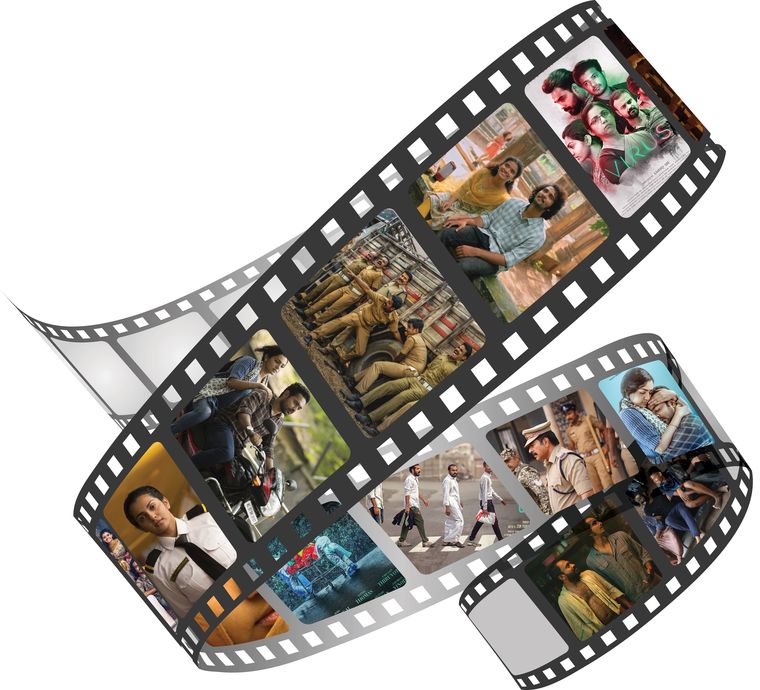
Malayalam cinema, popularly known as Mollywood, has come a long way since its inception in the early 20th century. Today, it is one of the most vibrant and thriving film industries in India, producing some of the finest films that have been recognized globally for their quality and content.
Pioneers of Malayalam Cinema
The early years of Malayalam cinema were marked by the emergence of pioneers such as J. C. Daniel, who is considered the father of Malayalam cinema. His silent film Vigathakumaran, released in 1928, is considered the first Malayalam film ever made. However, it was not until the 1950s that the industry saw significant growth with the release of films such as Neelakuyil (1954), which went on to win the President’s Gold Medal.
The Golden Era of the 1960s and 1970s
The 1960s and 1970s were a golden era for Malayalam cinema, with the emergence of great filmmakers such as P. Bhaskaran, K. S. Sethumadhavan, and Adoor Gopalakrishnan. These filmmakers, along with talented actors like Prem Nazir, Sathyan, and Madhu, helped to establish Malayalam cinema as a serious player in the Indian film industry.
Innovative Approaches in the 1980s and 1990s
In the 1980s and 1990s, Malayalam cinema saw a new wave of filmmakers who brought a fresh and innovative approach to filmmaking. Directors such as Padmarajan, Bharathan, and I. V. Sasi made films that were realistic, socially relevant, and aesthetically pleasing. Actors like Mammootty and Mohanlal emerged as leading stars and went on to become some of the most respected and popular actors in India.
New and Exciting Talent in the 21st Century
In the 21st century, Malayalam cinema has continued to grow and evolve, with the emergence of new and exciting talent. Directors such as Lijo Jose Pellissery, Dileesh Pothan, and Aashiq Abu have gained international recognition for their bold and unconventional films. Actors like Fahadh Faasil, Nivin Pauly, and Parvathy Thiruvothu have become household names and are recognized for their versatility and depth.
Changing Audience Preferences
The growth of Malayalam cinema can also be attributed to the changing tastes and preferences of the audience. Today’s Malayalam cinema is characterized by its realism, strong narratives, and relatable characters. It is not just about entertainment, but also about addressing important social issues and sparking meaningful conversations.
Advancements in Technology
Moreover, the growth of Malayalam cinema has been supported by advancements in technology, which have enabled filmmakers to experiment with new and innovative techniques. Digital cameras, editing software, and special effects have helped to enhance the visual appeal of Malayalam cinema and take it to new heights.
The growth of Malayalam cinema over the years has been a remarkable journey, marked by the emergence of great filmmakers, actors, and technicians. It is a testament to the industry’s resilience and commitment to excellence. Today, Malayalam cinema has a global appeal and is recognized for its unique voice and perspective. It is a shining example of the power of cinema to entertain, educate, and inspire.
Books
Transform Your Life with These 10 Life-Changing Self-Help Books
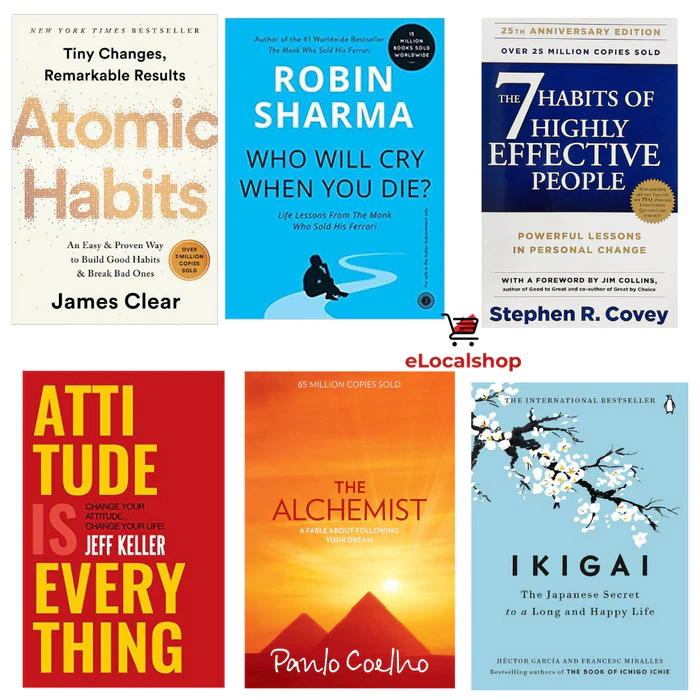
Self-help books have become a popular genre in recent years, offering readers a chance to explore their inner selves, identify areas for personal growth, and learn new strategies for overcoming challenges. With so many books to choose from, it can be overwhelming to know where to start. To help you on your journey of self-discovery and personal transformation, we’ve compiled a list of the top 10 self-help books that have had a profound impact on readers worldwide.
- “The Power of Now” by Eckhart Tolle – This book teaches readers the importance of being present in the moment and letting go of the past and future to find inner peace.
- “The 7 Habits of Highly Effective People” by Stephen Covey – This classic book explores the habits of successful people and offers practical advice on how to incorporate them into your own life.
- “The Alchemist” by Paulo Coelho – This novel tells the story of a young shepherd who sets out to find his personal legend, teaching readers to follow their dreams and trust in the universe.
- “Daring Greatly” by Brené Brown – This book explores the power of vulnerability and encourages readers to embrace it as a key component of personal growth.
- “Atomic Habits” by James Clear – This book explores the science of habit formation and offers practical advice on how to build good habits and break bad ones.
- “The Miracle Morning” by Hal Elrod – This book outlines a morning routine designed to increase productivity, improve health, and promote personal growth.
- “The Four Agreements” by Don Miguel Ruiz – This book explores four key agreements that can transform your life: be impeccable with your word, don’t take anything personally, don’t make assumptions, and always do your best.
- “Big Magic” by Elizabeth Gilbert – This book explores the creative process and encourages readers to pursue their passions and live a creative life.
- “The Happiness Project” by Gretchen Rubin – This book outlines a year-long project in which the author set out to improve her overall happiness, offering practical advice for readers to do the same.
- “Man’s Search for Meaning” by Viktor E. Frankl – This book tells the author’s personal story of survival in a concentration camp during World War II and offers insight into finding meaning and purpose in life.
These books have helped countless readers overcome challenges, find inner peace, and achieve personal growth. Whether you’re looking to improve your relationships, build better habits, or find your life’s purpose, there’s a self-help book out there that can guide you on your journey.
-
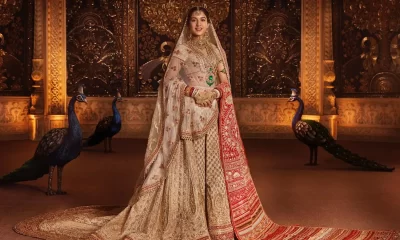
 Style11 months ago
Style11 months agoBridal Guide : Best Looks of Radhika Merchant Ambani
-
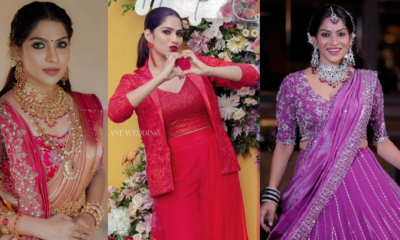
 Entertainment1 year ago
Entertainment1 year agoBridal Bliss : All Bridal Looks of Swasika Vijay
-
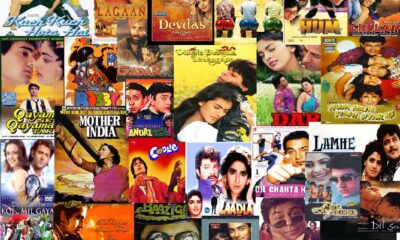
 Movies1 year ago
Movies1 year agoA Nostalgic Journey Through Love &Cinema : Best Bollywood Romantic 90s Movies
-

 AD9 months ago
AD9 months agoPopular Curtain Fabrics to Consider for Your Home
-
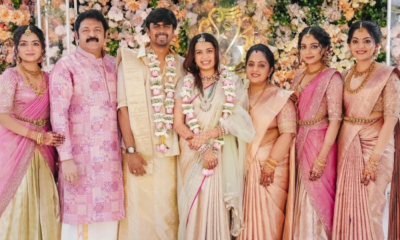
 Events9 months ago
Events9 months agoBest of Fashion Looks : Diya Krishna Wedding
-

 Events9 months ago
Events9 months agoThe L’Oréal Paris Show at Paris Fashion Week 2024
-
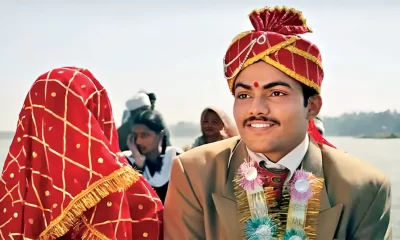
 news9 months ago
news9 months agoLaapataa Ladies: Kiran Rao’s Social Satire Becomes India’s Official Entry for the 2025 Oscars
-

 People1 year ago
People1 year ago10 Star-Studded Ventures Owned by Malayalam Celebrities










